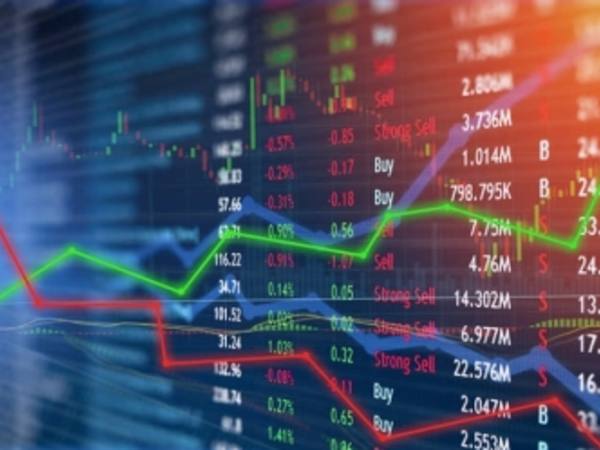- Study finds commission-free trading in the US harms market quality
- While retail trades usually predict market returns, Robinhood’s don’t
- Market quality harmed by uninformed traders rather than high frequency traders
Stock trading commissions have been in steady decline for many years, making investment more accessible and helping to lift the proportion of retail investors in the US stock market from 10 per cent in 2010 to 20 per cent last year. But it is the arrival of zero trading commission platforms with no account minimums which has ushered in a new era of stock market participation, particularly in the US. Robinhood, the pioneer of commission-free trading, reported 3 million new accounts in the first quarter of 2020 alone, as lockdowns put many other activities on hold.
Studying this new breed of investor, academics Gregory Eaton and Brian Roseman, of Oklahoma State University, along with T. Clifton Green and Yanbin Wu of Emory University, undertook multiple regression analyses to see what impact Robinhood users are having on stock market quality in a paper titled Zero-commission individuals, high frequency traders and stock market quality.
The research – published early February – was carried out last year, before the GameStop (GME) saga, but its findings were prescient showing the detrimental effect noise traders can have on markets.
The researchers isolate the effects of Robinhood investors on certain stocks by analysing the impact of trading outages. While lengthy outages are rare, DownDetector.com, a web platform that compiles user complaints, reported events on 25 separate trading days during an eight-month sample period in which at least 200 Robinhood users reported outages. The median length of the outages in the sample was 30 minutes, and the study removed data from the busiest trading days in March when markets had very high volatility, as well as times of market-wide circuit breakers, to ensure the results were not skewed by those periods.
The researchers then predicted what stocks Robinhood users would have traded in absence of the outage, by analysing message board activity from the Reddit WallStreetBets forum, which they found strongly predict future changes in Robinhood ownership in general, providing a strong basis for their analysis on the impact of outages.
Their first finding, controlling for various effects, is that outages were associated with 6.2 per cent fewer trades in popular Robinhood stocks, suggesting that users of the platform alone contribute a sizeable portion of the volume of trades for these companies.
Next they measure what impact these outages have on market quality, by analysing the impact on quoted spreads, effective spreads, realised spreads, and price. For each of these liquidity measures, they found robust evidence that Robinhood platform outages are associated with improved market quality among stocks favoured by Robinhood investors.
Specifically, they found that outages improved market liquidity for popular Robinhood stocks, as outages were associated with spreads 5 basis points lower than their mean of 61 basis points. Robinhood outages were also associated with lower return volatility, calculated by using transaction price changes over five minute windows. Again, using WallStreetBets mentions as the proxy for popular Robinhood stocks, outages were associated with 17 basis point lower transaction price volatility, which is meaningful relative to the mean of 240 basis points.
The researchers also found that there was “significant evidence of pull back from high frequency traders” during Robinhood outages. This is because in the US, unlike in the UK, commission-free brokers sell order flow data that high frequency traders can act on.
This finding raises interesting questions. If observing order flow allows high frequency traders to provide liquidity more effectively, then outages may harm liquidity in stocks emphasised by high frequency traders. On the other hand, if observing retail order flow allows predatory high frequency traders to trade in informed ways, their absence could improve market liquidity.
In the final leg of their analysis, the researchers split popular Robinhood stocks into those with high and low activity from high frequency traders and analysed the effects of outages. Encouragingly from a market structure perspective, they found the positive effects of Robinhood outages on market quality are the strongest for stocks with little involvement by high frequency traders, “providing convincing evidence that the market effects of outages are driven by zero-commission traders rather than predatory high frequency traders”. They say their findings suggest that liquidity-providing high frequency traders may mitigate the negative effects of zero-commission investors on market quality.
What should we make of this?
The findings suggest that not only is the financial illiteracy of Robinhood investors damaging for its users, it is also affecting market quality. The researchers analyse the sophistication of Robinhood users by studying patterns in its website traffic. They found that the three most common FAQ pages visited were: “What is the Stock Market?”, “What is the Dow Jones Industrial Average (DJIA)?” and “What is the S&P 500?”. This is quite worrying among people who have already signed up to the app.
Previous research says that aggregate retail order flow, which includes retail traders across multiple brokers, positively predict stock returns. However, this study finds that the same is not true of Robinhood traders, supporting the theory that its users act as uninformed noise traders. Although retail traders in aggregate appear to invest in the same types of securities that are popular among Robinhood investors, the broader measure of retail trading leads Robinhood trading by several days, which may explain the difference in performance.
Of course there are huge limitations to this particular study, but it raises interesting questions around what the regulatory environment should be around retail trading. The extraordinary price movements in GameStop and AMC Entertainment (AMC) last month, among other stocks, show the mighty power that the Reddit and Robinhood communities can muster. It will be interesting to see how the Securities and Exchange Commission responds.











